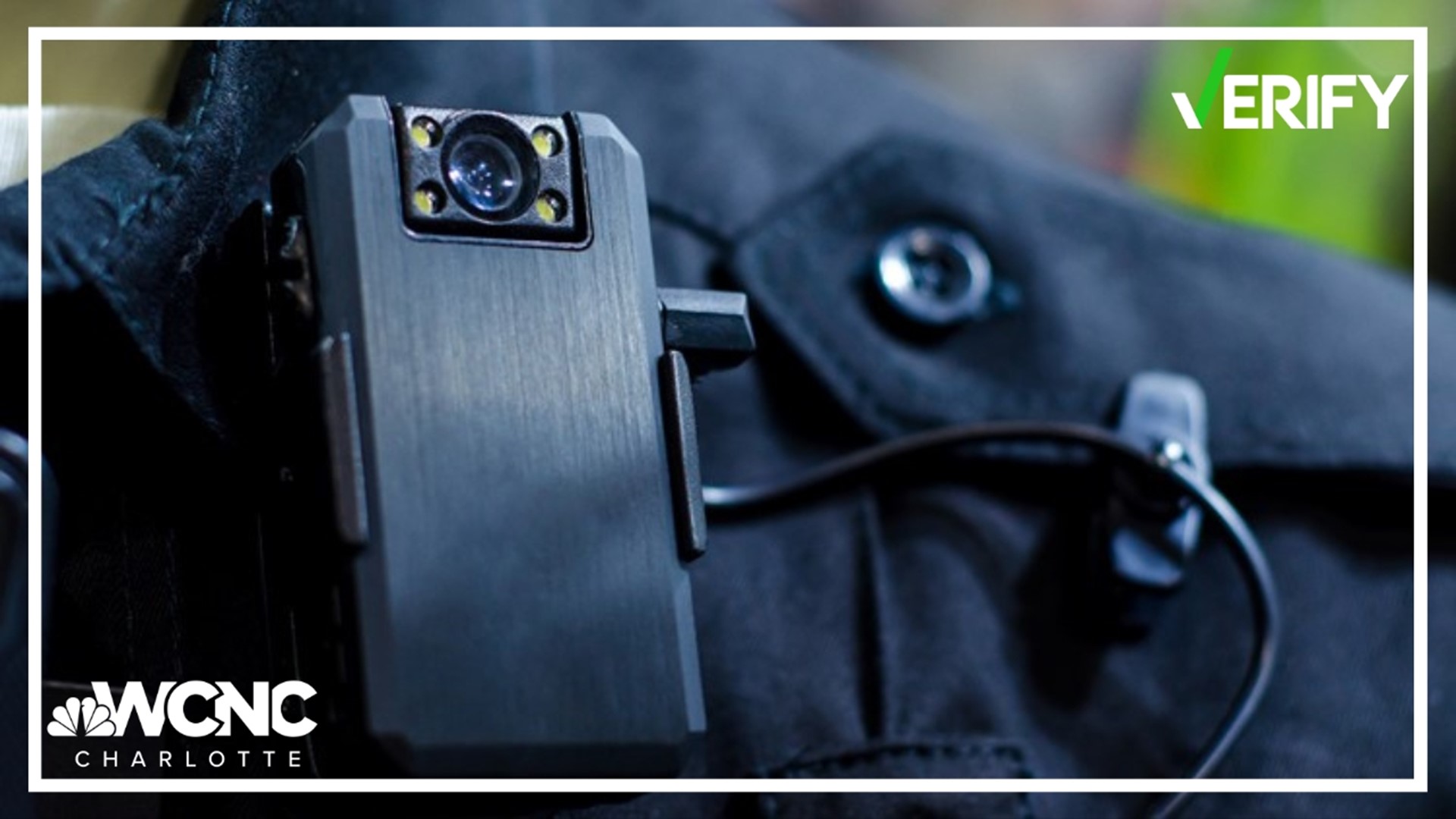CHARLOTTE, N.C. — Body camera footage from the controversial arrest of a woman in southwest Charlotte that went viral was released Tuesday morning by Charlotte-Mecklenburg Police.
The incident, which happened on Nov. 13, saw a CMPD officer repeatedly punching Christina Pierre while she was being restrained by at least four other officers. It happened at a bus stop along South Tryon Street near West Arrowood Road. Pierre had just gotten off work at a nearby Bojangles and was waiting for a bus when she was approached by an officer.
But why did the police release the videos to the public? What does North Carolina law say about the video captured by these body worn cameras?
OUR SOURCES
WHAT WE FOUND
First, it’s important to know that according to North Carolina law, body camera video is not considered public record.
To obtain body camera footage in North Carolina, state law requires members of the public to file a petition at the courthouse and then argue their case during a hearing. Ultimately, it's up to a judge to decide if "release is necessary to advance a compelling public interest."
"The body-worn cameras are great evidence in investigations and in order to not compromise the investigation that might be ongoing," Williams said.
But Williams said different police agencies have their own policies.
According to CMPD policy, which is outlined online for the public to view, officers are in charge of turning on their body cameras before interactions with citizens.
Some of those specific instances include traffic stops, suspicious vehicles or persons, voluntary investigative contact and arrests.
CMPD said body cameras can be stopped during non-enforcement activities like traffic control or criminal investigations where the suspect has left and the officer is now talking to other officers or witnesses.
The main takeaway Williams wants to stress? Education. He said it's important for the community to know the rules and policies of its police agencies.
"Ordinarily, the public wants that footage yesterday, they want it just as soon as they hear about the incident," Williams said. "That doesn't always occur. And that, of course, raises the ire of the public. But if they understand the policy, they're educated about that. It could temper any protests or any dissatisfaction with law enforcement."
VERIFY is dedicated to helping the public distinguish between true and false information. The VERIFY team, with help from questions submitted by the audience, tracks the spread of stories or claims that need clarification or correction. Have something you want VERIFIED? Text us at 704-329-3600 or visit VERIFY.

